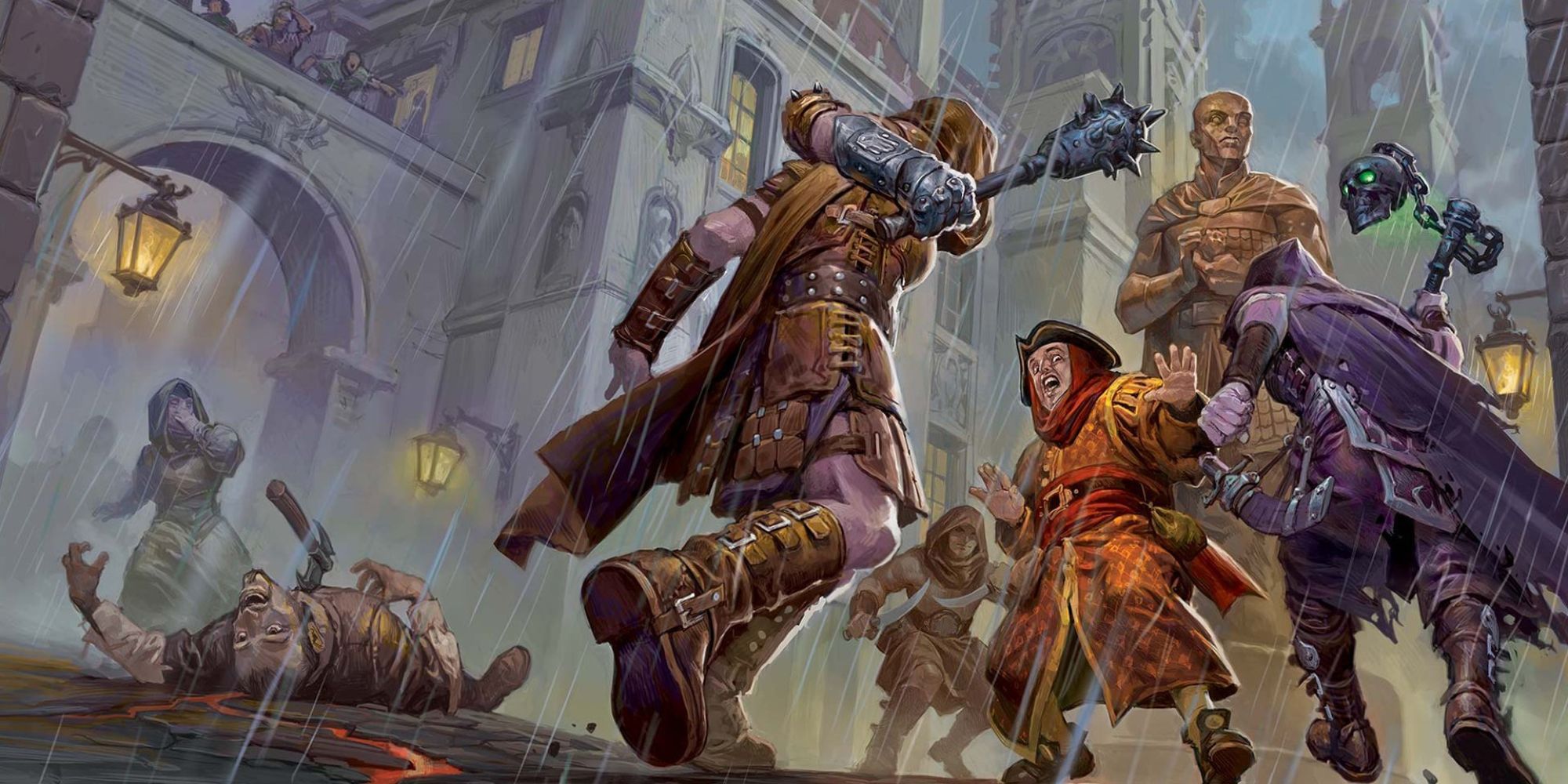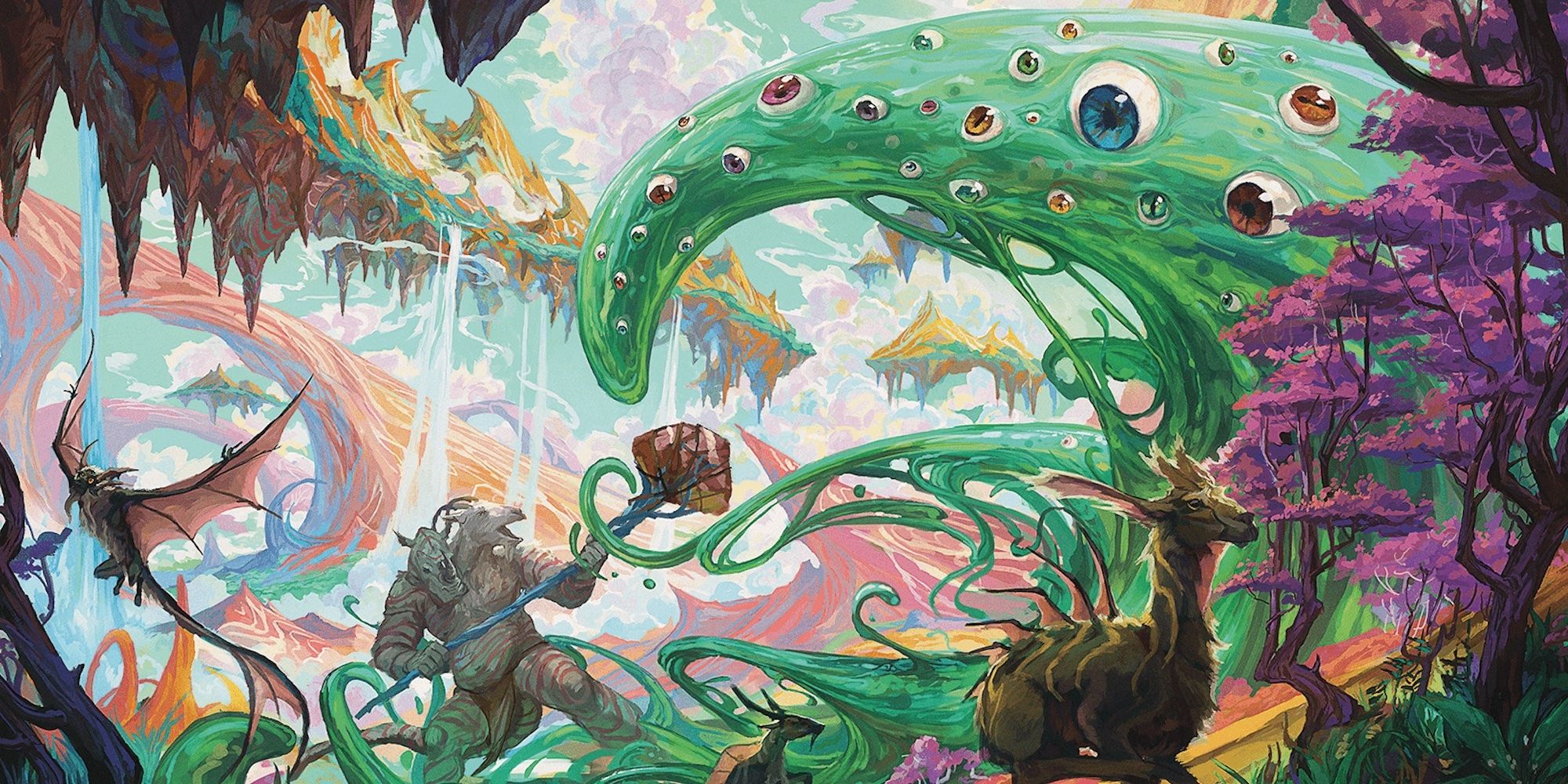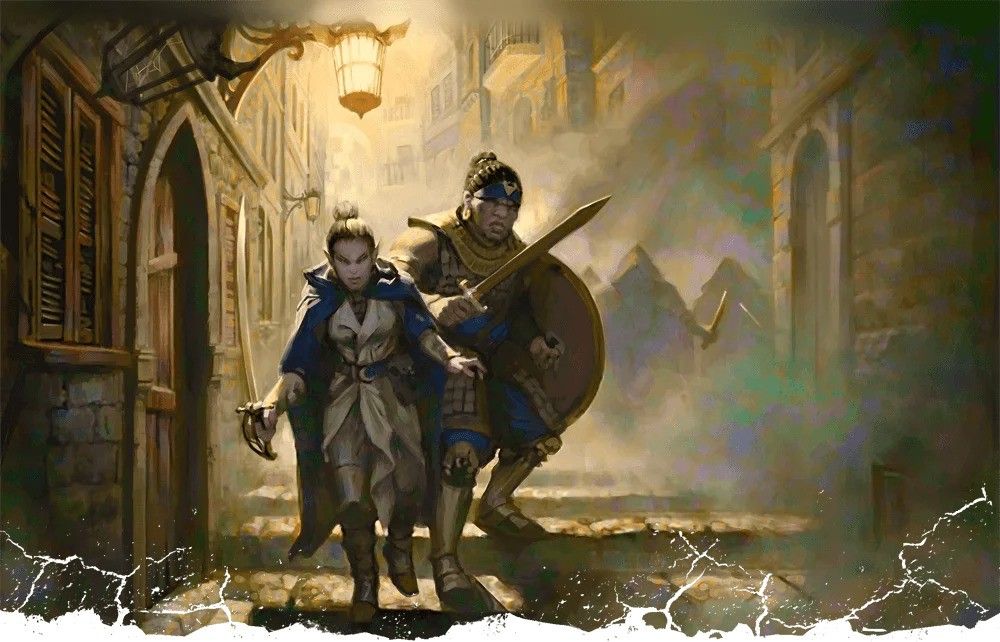Quick Links
Chases are a good way of shaking up the formula of an action scene.
InDungeons & Dragons, a chase scene can snag on some of the stricter mechanics.
The most lethargic elf in Faerunian history will handily outsprint the most athletic dwarf.

Dead End Via Wizards of the Coast
The scene loses power if the results are predetermined.
A darkness washes over the land as sickness spreads.
It’s time for plague Dungeons & Dragons.

Foggy streets via Wizards of The Coast
The main difference is that you have to manage stamina.
Characters with high constitution and advantage on the check can sprint forever, as the difficulty doesn’t increase.
Each character rolls on their turn for a complication, which impacts the next person in the chase.

Foggy streets via Wizards of The Coast
These can be obstacles to be navigated or hazards to be avoided.
A spellcaster can do the same with expeditious retreat.
Have asecond complications table for alternate move typesyour party has.

City Watch Via Wizards Of The Coast
Create catch-up mechanics, like shortcuts and riskier paths that require skill checks to reward extra distance.
“Any character immune to difficult terrain ignores the scene’s largest mechanic.
Create a more diverse range ofcomplications that have differing effects.

A large wagon blocks the person at the front of the chase.
They vault over it.
The party are chased by a gang through a busy street during a parade.

A fight has broken out on the street ahead.
A third player tries to use stone cunning, which does nothing.
Most default complications are nonsensical to a character with flight, for example.
A dwarven ranger has fallen behind their group in a chase.
Other systems have their own rules for running chases that can be spliced into D&D.
Blades In The Dark’s racing clocks are a great way of adding time pressure and breaking up stalemates.